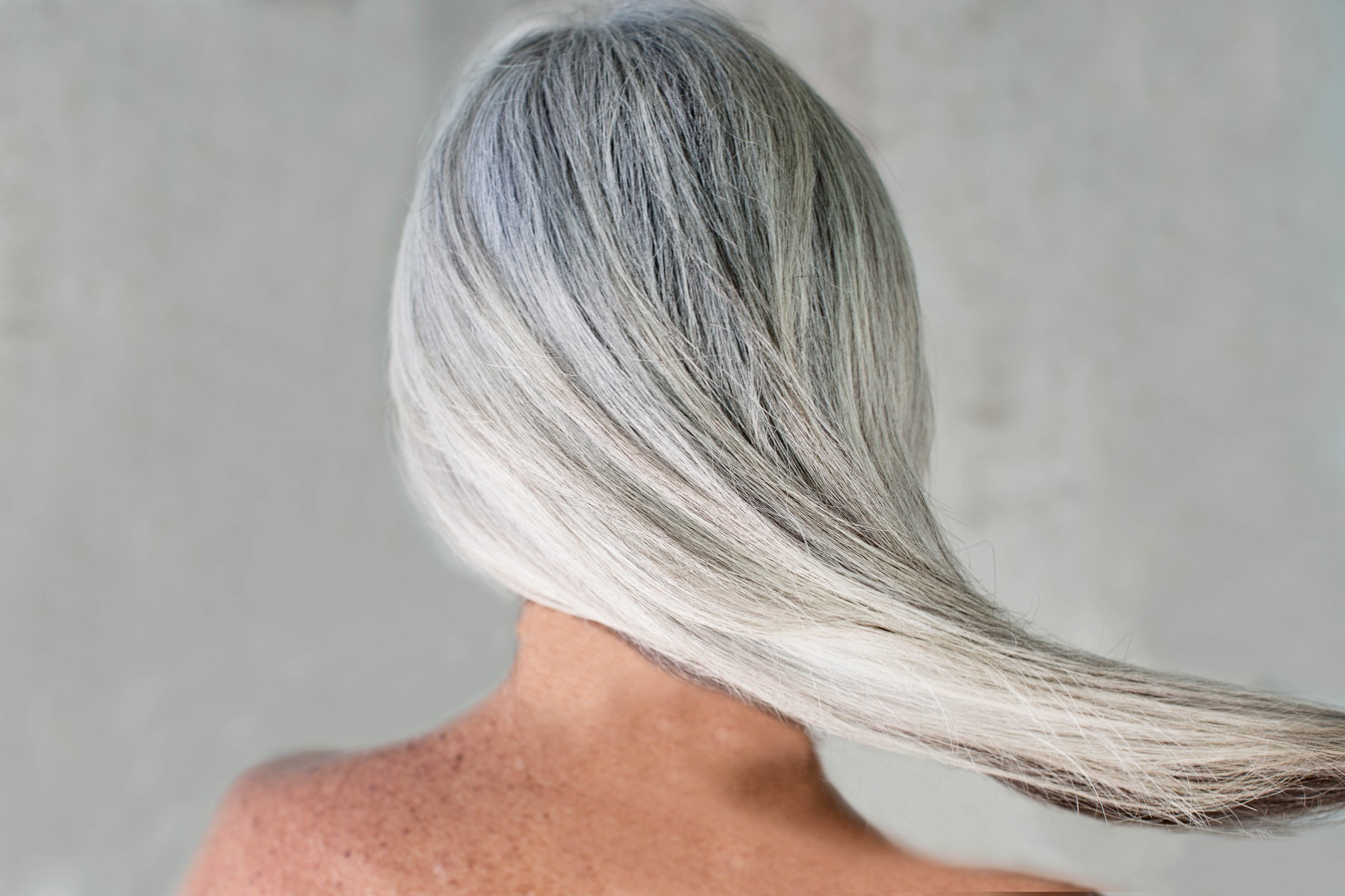
Hate to break it to you, but someday, you’re going to start sprouting white hairs (that is, if you haven’t already). Most people spot their first silvery strands in their 30s, but when exactly you go gray boils down to your ethnicity—Caucasians tend to do so earlier than African Americans, for example—and your family history.
If you’re already seeing white hairs in your 20s, that’s not too unusual—especially if your mom or dad reached silver-fox status early, as well. However, if your locks start to lose pigment earlier than others in your family, there may be some environmental and lifestyle factors at play. We spoke with Marie Jhin, MD, a board certified dermatologist and director of Premier Dermatology in San Francisco, to explore the surprising reasons you could be going gray in your 20s.
You’re super stressed
Experts have debated the connection between stress and gray hair, but some research does show a link. A 2013 New York University study published in Nature Medicine, for example, found stress can cause the depletion of stem cells from the base of hair follicles in mice.
There isn’t tons of research to back up the theory that stress impacts hair, but there’s plenty of anecdotal evidence, says Dr. Jhin. Just look at these photos of how presidents aged in office for some not-so-scientific proof.
Health.com: How to Kick Stress in 20 Minutes or Less
You have a medical condition
In rare cases, premature graying may be triggered by health issues like thyroid disease or problems with the pituitary glands. Autoimmune diseases that attack the skin and hair, such as alopecia or vitiligo, can also cause grays. “Autoimmune means your own cells are attacking your body,” says Dr. Jihn. “So if your body is attacking your hair cells, you can go gray as a result.”
You’re vitamin deficient
Another possibility for your silvery strands is a vitamin B12 deficiency, says Dr. Jhin. There’s a number of factors that put you at greater risk, like being a vegetarian or vegan, taking birth control pills or having GI issues. But if your early grays are linked to B12, it’s most likely due to pernicious anemia, a decrease in red blood cells caused when intestines can’t absorb enough vitamin B12.
Health.com: 19 Signs Your Thyroid Isn’t Working Right
You’re a smoker
“Smoking is of the worst things you can do for your skin and hair,” says Dr. Jihn. In fact, research has shown an association between cigarette smoking and the onset of gray hair before age 30. “If you look at smokers, you can see the wrinkles in their skin,” she says. “You may not be able to see wrinkles on the scalp, but it’s still affecting all the follicles.”
All that said, Dr. Jihn still emphasizes that all of these factors have much less of an impact on your hair color than your genes. “But if you notice you’re getting premature graying and it doesn’t run in your family,” says Dr. Jihn, “then you should see your doctor to check if your thyroid is okay, your vitamin levels are fine, and that you don’t have anemia.”
This article originally appeared on Health.com
More Must-Reads from TIME
- Why Trump’s Message Worked on Latino Men
- What Trump’s Win Could Mean for Housing
- The 100 Must-Read Books of 2024
- Sleep Doctors Share the 1 Tip That’s Changed Their Lives
- Column: Let’s Bring Back Romance
- What It’s Like to Have Long COVID As a Kid
- FX’s Say Nothing Is the Must-Watch Political Thriller of 2024
- Merle Bombardieri Is Helping People Make the Baby Decision
Contact us at letters@time.com